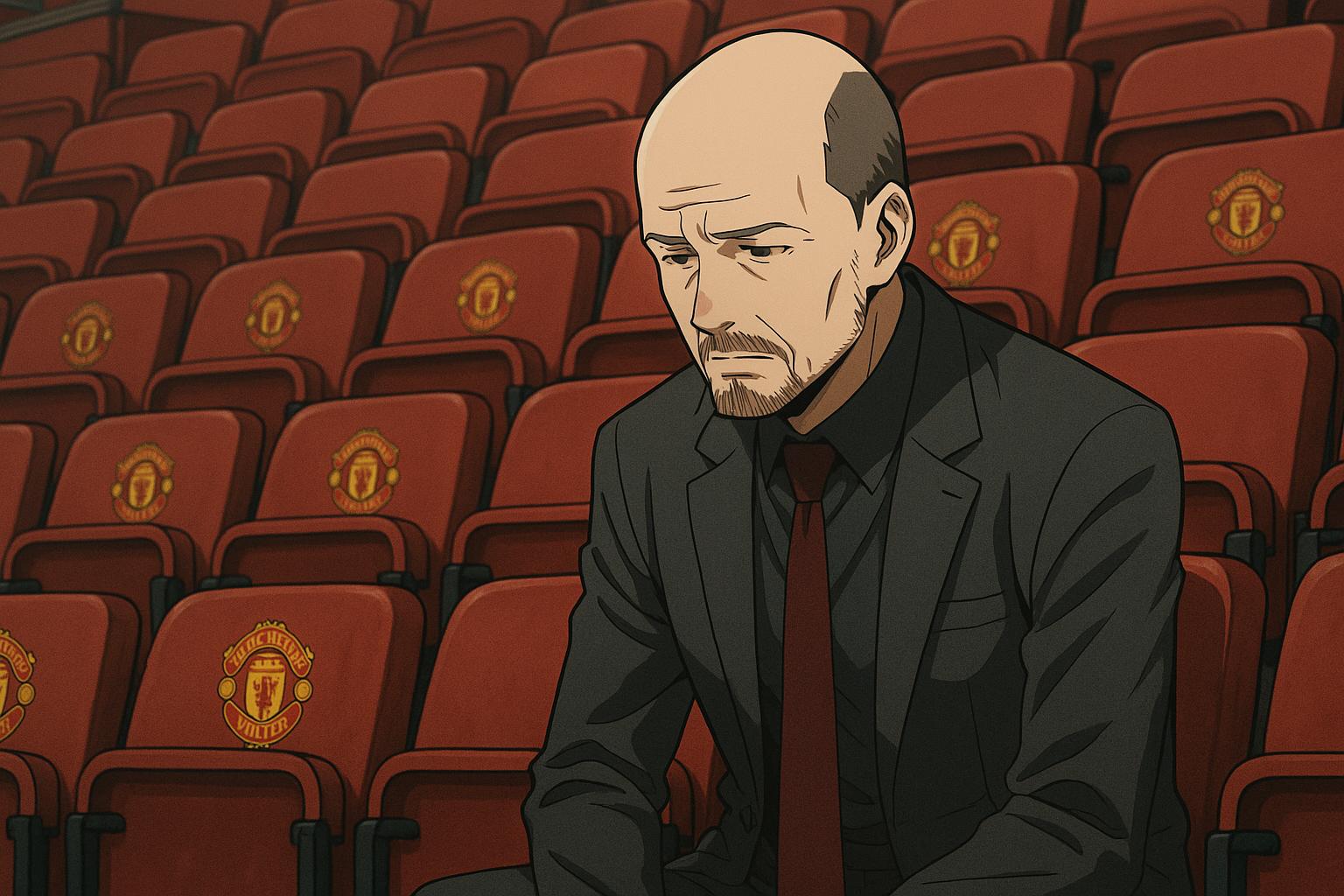Manchester United has revealed a fresh round of redundancies affecting up to 200 staff, days after losing the Europa League final. The cuts form part of urgent cost-saving measures to address sustained financial losses exceeding £350 million since 2019, as the club also ends free meals and slashes executive bonuses.
Manchester United has initiated another round of redundancies, notifying staff just hours after the team’s disheartening defeat in the Europa League final. Reports indicate that up to 200 employees within the club, already burdened by previous job losses, are currently facing redundancy notifications, a decision that has raised eyebrows among insiders due to its timing.
Chief Executive Omar Berrada had previously signalled in February that the organisation was undergoing a transformation plan, which includes significant staffing cuts aimed at restoring the club's profitability. The recent layoffs come after a year which saw 250 positions eliminated as the club struggles with ongoing financial difficulties. According to the club, this latest decision is part of an urgent measure to mitigate financial losses that have now exceeded £350 million since 2019. The absence of a crucial £100 million Champions League qualification windfall compounds the urgency for immediate cost-cutting.
Berrada has consistently framed these redundancies as essential steps in a long-term strategy to create a more secure financial foundation for the club. This plan ostensibly sets the stage for necessary investments in both men’s and women’s football and improvements to infrastructure. Yet the morale within the club appears to be dwindling, as longstanding and respected employees prepare to exit amidst the turmoil.
The impact of these cuts has not gone unnoticed by the team's management. Rúben Amorim, Manchester United's manager, addressed the situation directly, attributing the redundancies to the club's underperformance on the pitch. He stated that while the players remain focused on their own challenges, the broader context of financial austerity—including the reduction of perks like staff bonuses—places additional pressure on the squad. There is a palpable sense that the cuts will have a cascading effect on team dynamics and productivity, making it imperative for the players to counteract these challenges through improved performances.
In addition to workforce reductions, the club has also scrapped free meals for staff and slashed executive bonuses, all consonant with their focus on consolidating resources to reverse a trend of fiscal instability. Sources within Old Trafford suggest that these measures aim to ensure the club can navigate its current predicament while striving towards future success. However, many remain sceptical about the potential effectiveness of such drastic changes and their implications for club culture.
As the fallout from the repeated redundancies unfolds, Manchester United appears caught in a cycle of financial distress exacerbated by performance failures, raising critical questions about the long-term viability of its current strategies and leadership. The challenge ahead remains formidable: remedying financial woes while simultaneously cultivating a competitive team capable of revitalizing a once-glorious club’s standing in both domestic and international football.
Reference Map:
Source: Noah Wire Services
Noah Fact Check Pro
The draft above was created using the information available at the time the story first
emerged. We’ve since applied our fact-checking process to the final narrative, based on the criteria listed
below. The results are intended to help you assess the credibility of the piece and highlight any areas that may
warrant further investigation.
Freshness check
Score:
8
Notes:
The narrative is recent, with the latest developments reported on May 22, 2025. However, similar reports about redundancies at Manchester United have been published since February 2025, indicating that the core information has been in circulation for several months. ([skysports.com](https://www.skysports.com/football/news/11095/13316332/man-utd-club-statement-confirms-up-to-200-more-redundancies-possible-and-free-lunches-set-to-end-for-old-trafford-staff?utm_source=openai), [news.sky.com](https://news.sky.com/story/manchester-united-announce-more-redundancies-with-free-staff-lunches-scrapped-13316391?utm_source=openai)) The repetition of similar content across multiple outlets may suggest recycled news. Additionally, the narrative includes updated data, such as the recent Europa League final result, which may justify a higher freshness score but should still be flagged. ([ft.com](https://www.ft.com/content/3ba3698a-e2d6-4b00-95d9-342bd14393cc?utm_source=openai))
Quotes check
Score:
7
Notes:
The narrative includes direct quotes from CEO Omar Berrada and manager Rúben Amorim. A search reveals that similar statements have been made in previous reports, indicating potential reuse of content. ([skysports.com](https://www.skysports.com/football/news/11095/13316332/man-utd-club-statement-confirms-up-to-200-more-redundancies-possible-and-free-lunches-set-to-end-for-old-trafford-staff?utm_source=openai), [standard.co.uk](https://www.standard.co.uk/sport/football/man-utd-cuts-sir-jim-ratcliffe-old-trafford-carrington-b1212945.html?utm_source=openai)) However, no exact matches were found for the specific wording used in this narrative, suggesting some originality.
Source reliability
Score:
6
Notes:
The narrative originates from the Daily Mail, a tabloid newspaper known for sensationalist reporting. While it is a widely read publication, its reputation for accuracy is often questioned. The reliance on a single, potentially unreliable source raises concerns about the credibility of the information presented.
Plausability check
Score:
8
Notes:
The claims about Manchester United's financial difficulties and recent redundancies are consistent with reports from other reputable outlets, such as the Financial Times and The Guardian. ([ft.com](https://www.ft.com/content/1bd017de-f14c-417b-a097-e46c2629175d?utm_source=openai), [theguardian.com](https://www.theguardian.com/football/2025/feb/11/manchester-united-jim-ratcliffe-redundancies?utm_source=openai)) The narrative's timing, following the Europa League final loss, aligns with the club's financial challenges. However, the lack of supporting detail from other reputable outlets in this specific report is a concern.
Overall assessment
Verdict (FAIL, OPEN, PASS): FAIL
Confidence (LOW, MEDIUM, HIGH): MEDIUM
Summary:
The narrative presents information that is largely consistent with previous reports, indicating recycled content. The reliance on a single, potentially unreliable source further diminishes its credibility. While the claims are plausible and align with known facts, the lack of supporting detail from other reputable outlets and the potential reuse of content raise significant concerns about the narrative's originality and reliability.
